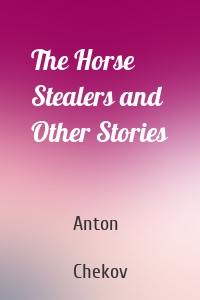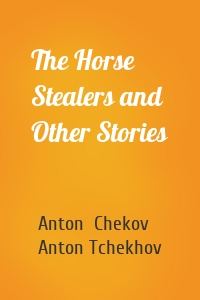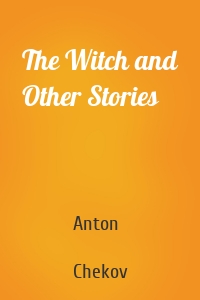Anton Chekov
11 кн.
The Bishop and Other Stories
Anton Chekhov, Anton Chekov и др.
Anton Chekhov (1860-1904) was a master of the short story. The son of a former serf in southern Russia, he attended Moscow University to study medicine, writing short stories for periodicals in order to support his family. What began as a necessity became a legitimate career in 1886 when he was asked to write in St. Petersburg for the Novoye Vremya (New Times), owned by millionaire magnate Alexey Suvorin. Chekhov began paying more attention to his writing, revising and developing his own...
| Автор | Anton Chekhov, Anton Chekov и др. |
The Duchesse de Langeais
Honoré De Balzac, Оноре Бальзак и др.
| Автор | Honoré De Balzac, Оноре Бальзак и др. |
The Horse Stealers and Other Storie...
Anton Chekhov (1860-1904) was a master of the short story. The son of a former serf in southern Russia, he attended Moscow University to study medicine, writing short stories for periodicals in order to support his family. What began as a necessity became a legitimate career in 1886 when he was asked to write in St. Petersburg for the Novoye Vremya (New Times), owned by millionaire magnate Alexey Suvorin. Chekhov began paying more attention to his writing, revising and developing his own...
| Автор | Anton Chekov, Anton Tchekhov |
The Wife and Other Stories
Anton Chekhov, Anton Chekov и др.
YEVGRAF IVANOVITCH SHIRYAEV, a small farmer, whose father, a parish priest, now deceased, had received a gift of three hundred acres of land from Madame Kuvshinnikov, a general's widow, was standing in a corner before a copper washing-stand, washing his hands. As usual, his face looked anxious and ill-humoured, and his beard was uncombed.<br><br>"What weather!" he said. "It's not weather, but a curse laid upon us. It's raining...
| Автор | Anton Chekhov, Anton Chekov и др. |
The Witch and Other Stories
Anton Chekhov, Anton Chekov и др.
IN the village of Reybuzh, just facing the church, stands a two-storeyed house with a stone foundation and an iron roof. In the lower storey the owner himself, Filip Ivanov Kashin, nicknamed Dyudya, lives with his family, and on the upper floor, where it is apt to be very hot in summer and very cold in winter, they put up government officials, merchants, or landowners, who chance to be travelling that way. Dyudya rents some bits of land, keeps a tavern on the highroad, does a trade in tar,...
| Автор | Anton Chekhov, Anton Chekov и др. |












